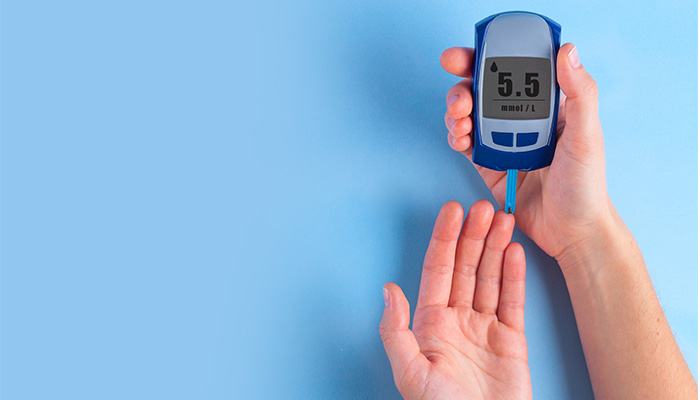Your body is an excellent machine; its various organs and glands work in coordination to perform a variety of body functions effectively. Unfortunately, if one of the components of this machine fails to work properly, it often affects your entire body.
The Thread Between Insulin and Diabetes
Glucose, commonly called as sugar, is the energy source for the body. It is derived from the food that we eat. During digestion, the food is broken down into simple sugars and absorbed into the bloodstream. The body’s cells take in sugar from the bloodstream to produce energy. The inflow of sugar into the body’s cells is facilitated by a hormone called insulin.
Diabetes occurs when either the body does not produce enough insulin or the body’s cells do not respond to its presence. If the body produces little or no insulin, the sugar in the blood cannot enter the cells and stays in the bloodstream. These high blood sugar levels are characteristic feature of diabetes.
The Early Phase Of Diabetes- Insulin Resistance And Prediabetes
Diabetes does not happen in a day or two; it takes months or years to develop. During this period, the body slowly becomes insensitive to insulin and does not allow glucose to enter the body’s cells. Insulin may be present in adequate amount, but the body’s cells do not respond to it. As a result, the sugar in the bloodstream gets elevated. In turn, the high blood sugar stimulates the pancreas to produce more insulin. This stage is called insulin resistance where both the blood sugar and the insulin levels are high. Despite the high levels of blood sugar and insulin, the body cannot use the sugars. Insulin resistance can be revered, if you start taking of your diet and include physical activity in your lifestyle.
If you have insulin resistance and do not do anything about it, over a period of time, the pancreas may become overworked and fail totally; further increasing the blood sugar levels. Thus, insulin resistance may increase the risk of developing type 2 diabetes in the future. Scientists believe that genetic factors may have an important role in the development of insulin resistance and diabetes.
Another condition, called prediabetes is thought to be the stage before diabetes and the alarm for upcoming diabetes. If you have prediabetes, your blood sugar levels may be high, but not so high that you can be diagnosed as having diabetes. However, you have increased risk of developing type 2 diabetes in the future. But there is good news too. Not all people with pre-diabetes develop type 2 diabetes. With timely intervention and a healthy lifestyle, prediabetes can be reversed and the blood sugar levels can be controlled.
In type 2 diabetes, your pancreas produces an adequate amount of insulin, but the body’s cells become insensitive to the presence of insulin. As a result, the body’s cells are unable to take in glucose form the bloodstream. Your body interprets it as lack of insulin and sends a signal to the pancreas to produce more insulin. Even though the insulin levels are high, body cells become incapable of using glucose. This glucose stays in the blood, increasing its level furthur.
The scenario is different if you have type 1 diabetes. Due to reasons unknown, immune system of the body initiates an attack against its own body’s cells, this is called an autoimmune attack. In type 1 diabetes, the insulin-producing cells in the pancreas are destroyed by autoimmune attack. As a result, the pancreas produces little or no insulin. With no insulin in the body, the sugar in the bloodstream does not enter the body’s cells, leading to high blood sugar levels. Insulin injections have to be taken in order to survive.
Genes: Contribution to Diabetes
You have an increased risk of developing type 2 diabetes if you are obese, follow a poor diet and live a sedentary lifestyle. In addition, your chance of developing type 2 diabetes increases if the disease runs in the family. You may inherit type 1 and type 2 diabetes from your It means that your genetic make-up may also make you vulnerable to the disease. Recently, scientists have found out some gene arrangements that may be responsible for insulin resistance and diabetes in an individual. Research indicates that faulty genetic codes may increase the risk of developing diabetes.
A Ray of Hope
In addition to the factors like obesity, physical inactivity and improper diet, genetic factors play an important role in development of diabetes. With the recent research showing specific genetic codes responsible for diabetes, it may not be too long when the risk of developing diabetes could be predicted, hence its development can be prevented. With more researches going on the same line, there is a hope that in near future, diabetes – type 1 and type 2 – may be curable.



